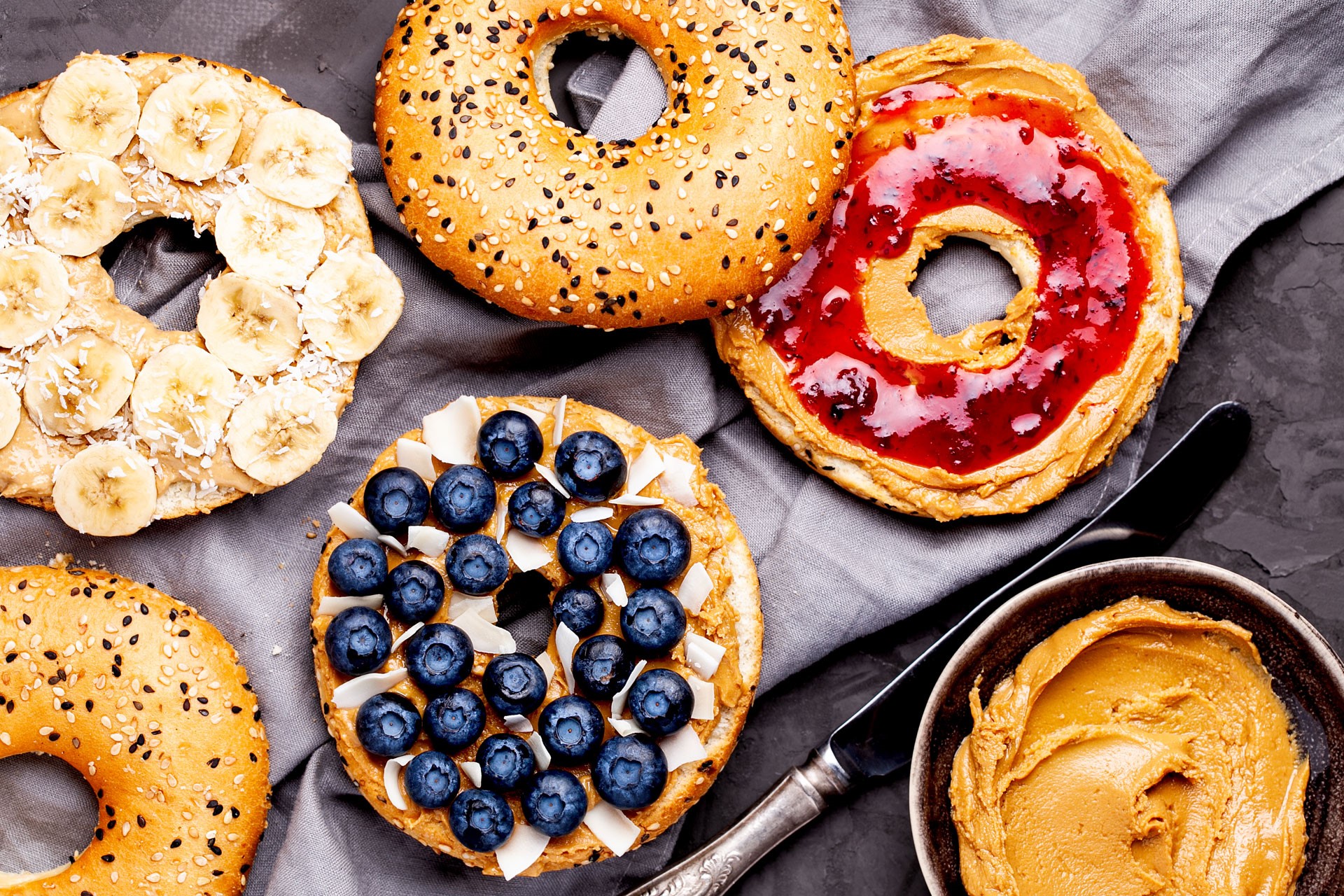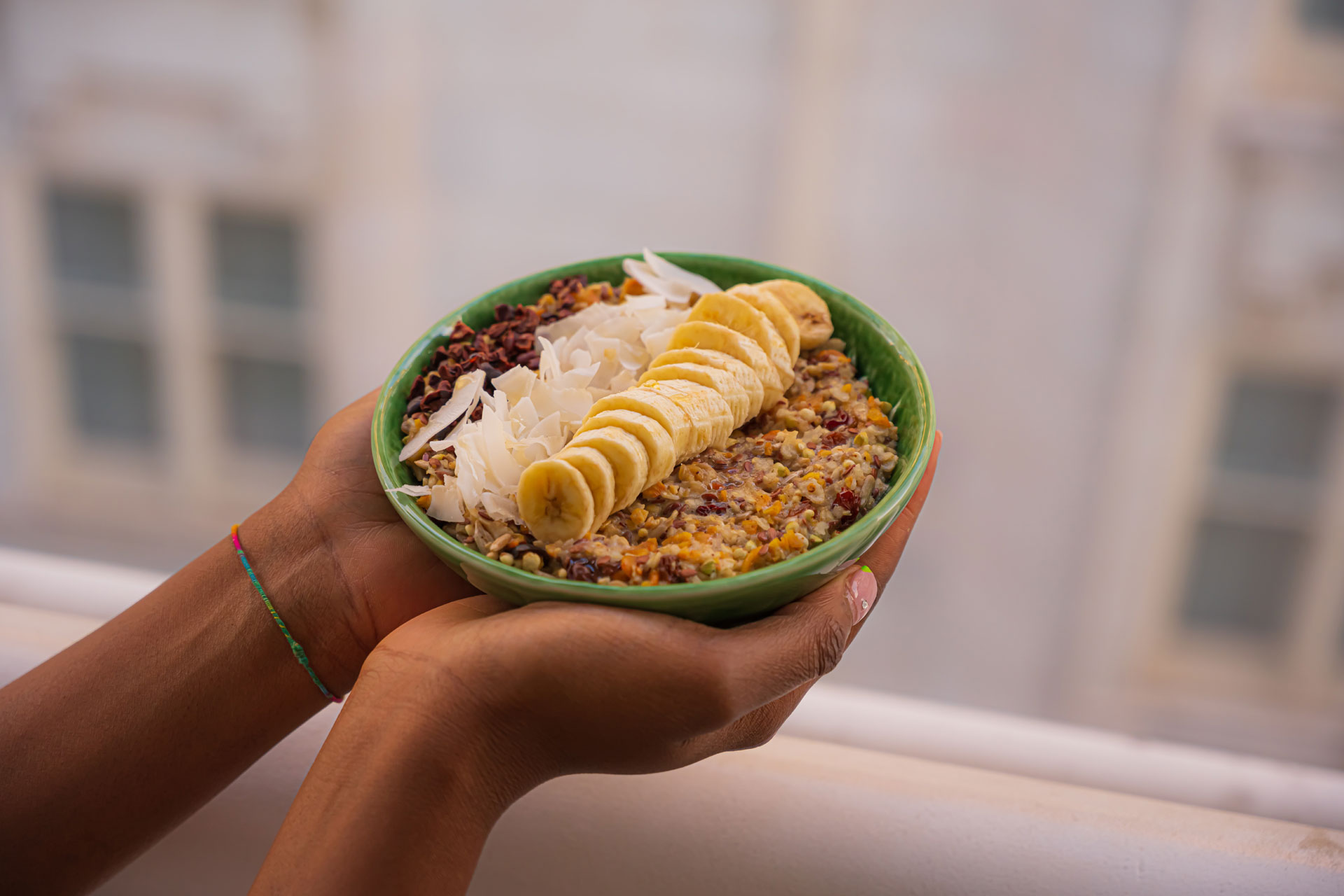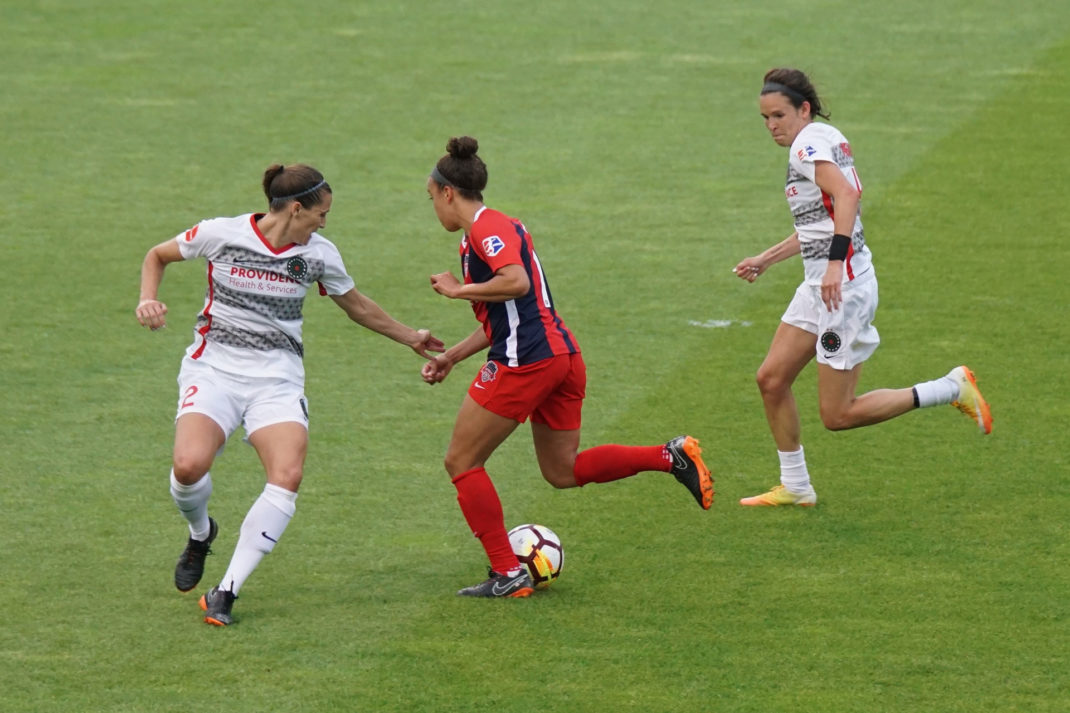An Expert’s Guide To Running Nutrition
By
1 year ago
We ask a sports nutritionist how to fuel your runs

Whether you’re taking part in the London Marathon later this month or are working towards your first 5k, nutrition is a massive part of any runner’s success. What you eat before and after running is crucial for fuelling your body and allowing it to recover – and if you’re doing lengthier runs, you may well need snacks while you’re on the move. But with so many factors to consider, the world of running nutrition can be confusing. That’s why we’ve enlisted sports nutritionist Pamela Nisevich Bede, Global Nutritionist for Lingo, to share her expert knowledge.
What To Eat Before and After Running: A Nutritionist’s Guide
Best meals to eat the night before a long run?
Your meal the night before a long run helps to fuel tomorrow’s miles. You need a meal that’s lower in fat, fibre, and flavour (nothing too spicy) which provides a generous amount of carbohydrate to top up your glycogen stores. To stock up on those all-important carbs yet avoid sleeping on an overly full stomach or having a long glucose spike, eat this pre-run meal earlier in the evening. Eating earlier will allow for more time to digest before sleeping and give time for the fuel to be absorbed before hitting the road the next morning. Start your meal with a small side salad or veggie starter and add in high quality protein finishing with your go-to carbs. Choices like whole grain brown rice or whole-wheat pasta paired with protein and a small amount of fibre helps to slow digestion so you can avoid a glucose rollercoaster.
Pre-run snack ideas?
Before a run, top off your fuel tank with a mix of fast and slow-releasing carbohydrates that are easy on your digestive system. Research into the best carbohydrate choices before a workout continues to evolve but one thing is clear, eating some carbs before a long run is very important. Try a blend of slow to digest and fast to digest carbs for a supply of steady energy and to restock your glycogen stores in the hours post-workout. I usually reach for a simple bagel with peanut butter and banana to keep me going through my runs!

(c) Emma Simpson, Unsplash
Optimal timing to eat before a run?
To allow yourself time to digest and absorb fuel, you’ll want to allow plenty of time between eating and running. By fuelling up two to three hours before the event you allow time for your glucose to increase, insulin to shuttle the glucose to working muscles or storage and your glucose to return to steady before you take off. If you fuel up too close to the event, you could be in the middle of a post-meal dip and low on available energy at the precise time you need it most. So, allow time before or begin to add in carbohydrates – drinks, gels, or chews – during your active warm up as your muscles will immediately put this fuel to use.
Running can impact your digestive system and the ways you react to foods. Therefore, I always suggest it’s best to stick to foods you know suit you. Don’t try to be too adventurous before a run, you want to be choosing easy-to-digest carbs that you’re familiar with to help avoid any digestive issues. I always advise avoiding high fibre foods, especially foods fortified with extra fibre, alcohol and fried/fatty foods are also wise to avoid.
Common mistakes/misconceptions people make when fuelling for running?
Two common misconceptions I see are skipping the pre-run meal and grabbing a last-minute pre-run banana. If you’re fuelling up 60 minutes before the run, you’re increasing your risk of hitting an energy low in the early miles as you’ll be digesting and storing this food at a time you need it to get to work. If this is you, keep the banana but give yourself two to three hours to digest it and add in some other nutrients to help slow down the influx of glucose into your system. If you’re training on empty you risk hitting the wall early where your performance will suffer, and you’ll increase muscle breakdown (the body using protein as a source of fuel). Instead, eat a pre-run meal that’s rich in easy to digest carbs, includes a bit of protein, and don’t forget ample hydration.
Fuelling your run is personal and is different for everyone. So, using a glucose monitor like Lingo by Abbott, to observe how your body reacts to foods and how your glucose changes when exercising, can give you personalised insights into how your body works and how to fuel for performance. Lingo provides customised coaching, including nutrition advice, helping you to be more in tune with your body’s glucose levels when exercising.
How to fuel your body to avoid ‘hitting the wall’ – and which foods best to eat mid-run if you do?
Besides appropriately training for the challenge ahead, there are strategic steps to take to avoid hitting the wall in the later miles of the marathon. First, make sure to get those slow-release carbohydrates in pre-run to set you up for success. Refuelling during the run will give your muscles the nutrients they need to elevate your endurance, maintain pace, and support your overall effort level.
The American College of Sports Medicine confirms a runner should be consuming 240-360 calories via carbohydrates an hour. The exact amount you need depends on your physical build, pace, and many other factors. To get started reaching this carb count, I would recommend taking in fuel every 20-30 minutes. Try energy gels, energy bars with a bit of protein and fat, or even raisins if you prefer whole foods. Remember, the trick with mid-run nutrition is being able to fuel before you feel you need it – you can practise this in your training to get it just right.
What length run will you likely need pre-run fuel?
For runs shorter than an hour, your body should typically have all the fuel it needs stored to succeed. But for longer runs that span over 90 minutes, you need to not only look at your nutrition choices the night before but start adding in mid-run fuel, starting within the first 30-45 minutes of the run.
What are the best foods to eat after a run?
Refuelling your recovery after a run is so important, particularly after intense efforts and longer runs. A balanced post-run meal that includes carbohydrates and is rich in protein will help replace your glycogen stores and aid muscle repair respectively. To make sure I consume at least 15-30 grams of protein and twice as much carbohydrate in the hour post workout, I drink a protein shake along with a half sandwich or I might sit down to a light meal of steel cut oats with berries and Greek yoghurt. If you’re looking for a quick post-run snack and plan on having a meal an hour or two later, try a smoothie made with veggies, fruits and protein powder alongside some nuts and pretzels. Rehydration is as important as refuelling so don’t forget to replenish your water supplies too!




